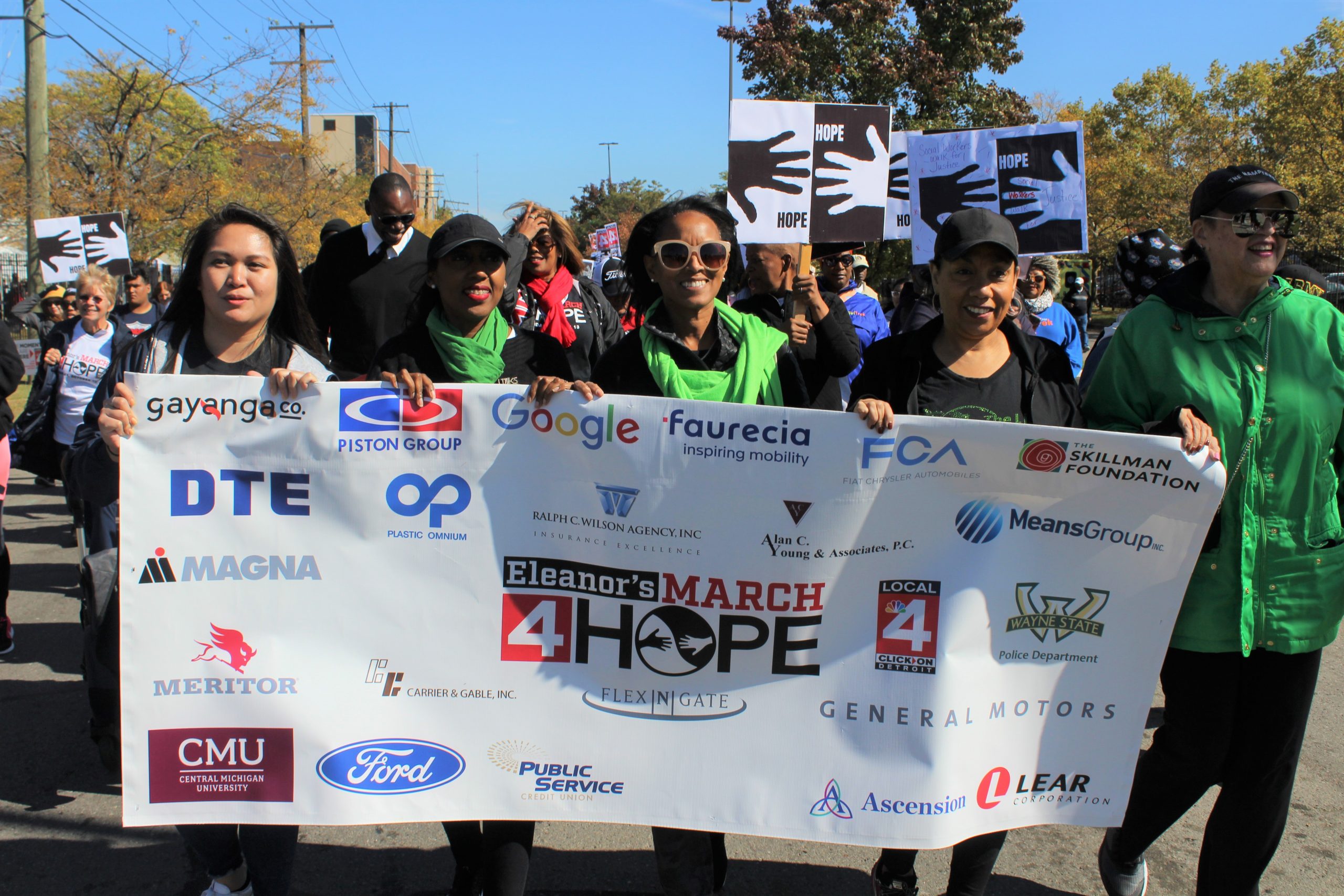2022 March4HOPE Equitable Employment
RECOGNIZING THE PROBLEM
As we enter the COVID endemic, expectation of work-life balance—especially among youth—is making it harder for employers to attract and keep talent. Even high fuel prices and record inflation seem to have little impact on employment numbers as job candidates look for modernized employment conditions including equity- and accessibility-informed hiring requirements, flexibility at work, a culture of social justice, and better compensation.
GETTING AT THE ROOT
The pandemic was the tipping point of wage and resignation movements that have been building for some time. From Black struggles and women’s lib to worker, immigrant, queer, and disability rights, the call to re- imagine employment goes back as far as employment itself. At the center of this issue now is a power hand-off between the biggest generations of our era: Boomers and Millennials. While the former is marked by classical management approaches which prioritize formality, hierarchy, standardization, loyalty, and analogue communication, the latter insists on flexibility and personal freedom. For Millennials, the idea of spending an entire career with a single employer is increasingly less popular, and digitized or remote communication is preferred over analogue and in-person interactions. Professionals are demanding less time at the office and placing more focus on their personal interests while perhaps drawing from multiple streams of income for their knowledge and skills.
MAKING AN IMPACT
Below are a few points we share with employers to help them keep up.
- Be IDEA Driven. This means creatively weaving Inclusion through Diversity, Equity, & Accessibility into every aspect of your work. Prioritize recruitment and growth of BIPOC, queer, and disabled workers and professionals. Consumers and workers are becoming more sensitive to the importance of inclusiveness. Employers that perform well in this area attract forward thinkers and diversity of perspective, which help your organization grow. The points that follow build from this principle.
- Be Equitable in Opportunity. This means recognizing the role of systemic barriers in disqualifying many otherwise capable candidates from employment or promotion. As alternatives to the often-arbitrary requirement for an advanced degree, consider looking for candidates with “demonstrated ability”. Requirements for “reliable transportation” or for “lifting x pounds” are hallmarks of classism, sexism, and ableism. To be competitive, employers must commit to and clearly communicate accommodations so that candidates and employees have just access to opportunities.
- Be Flexible. Workers are placing higher value on being compensated for their expertise and contributions rather than their time, where they sit, what they wear, or whether you see them at all. This means employers that can’t get past the need to have butts in chairs for the mere sake of it will be left behind. Rethink your standards, examining which are lingering hangovers from some distant time and consult with employees about how they prefer to work. If the pandemic has a silver lining, it’s discovery of the amazing productivity stemming from remote work and employer flexibility.
MAKING AN IMPACT CONTINUED…
- Below are a few points we share with employers to help them keep up.
Improve Your Culture. If you are committed to inclusion, social justice, or antiracism, be clear about it. Post messaging online and in your offices. Reinforce processes for grievances or complaints. Reimagine the work environment, ensuring that your lobby music, your office art, and your observed holidays are honoring diversity of culture. Hire professionals with lived experience to head up the work and ensure they have power and resources necessary to be effective. - Be Just in Compensation. This requires both transparency and generosity. Do not base salary on a candidate’s compensation history or ask them to indicate desired pay without clarifying the range. These are exploitative practices that result in pay disparities, particularly across gender and race. Instead, be clear about pay and the process for achieving increases. Consider establishing a competitive minimum wage for your entry level employees and posting compensation ranges for every job function including that of the CEO.
FOCUS: HOPE
In 2020, Focus: HOPE launched IDEA in Focus (formerly Go Pro), an antiracism and DEI training and consulting package to help employers become competitive in inclusion. We’ve partnered with three global corporations and several local organizations and authorities, teaching over 1 thousand executives, managers, and contributors in 6 countries and all over the United States. Internally, we have established a minimum wage for entry level employees and publicly post salary ranges. We prioritize diverse hiring and welcome returning citizens and other candidates with strong lived experience and expertise.
WHAT ELSE YOU CAN DO
- Employer—Adopt the practices listed above. Partner with Focus: HOPE through its IDEA in Focus training and consulting package for guidance and accountability at: [email protected]
- Employee—Join or start an Employee Resource Group (ERG) or other outlet to help you think through and organize around advocacy toward your needs. Be honest with yourself about what you require. Consider the creation of a dream board and participation in discussion groups to help you stay on track with your goals and aspirations while also supporting others. Become familiar with your employer’s handbook to understand your options for recourse when you have a complaint. Provide anonymous feedback to the Human Resources Department to help your company improve. Consider volunteering for task forces or other opportunities to improve culture where you work. Invite your employer to partner with Focus: HOPE for guidance and accountability through its IDEA in Focus training and consulting package.
